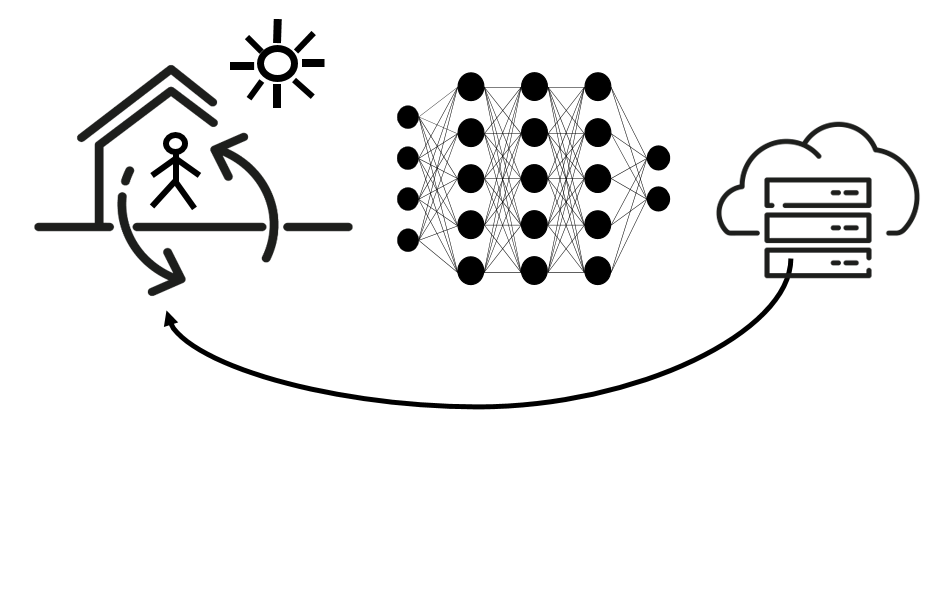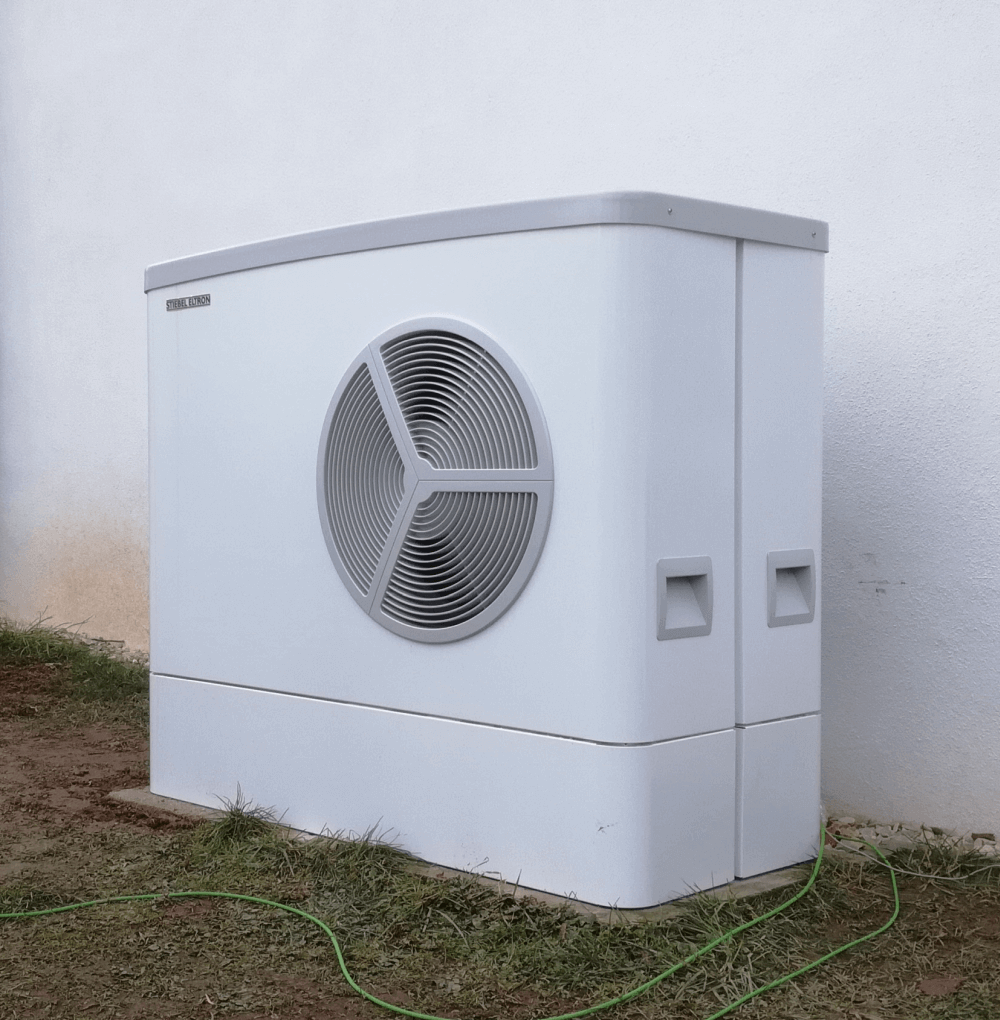| Duration: | 09/2021 - 08/2024 |
| Contracting Authority/ Sponsors: | DLR/BMBF (Förderbereich "Künstliche Intelligenz - Deutsch-Französische Kooperation") |
| Project Partners: | Stiebel-Eltron GmbH & Co. KG, CEA List (Laboratory for Integration of Systems and Technologies), EDF R&D, Laboratoire de Psychologie et NeuroCognition LPNC (assoziierter Forschungspartner) |
| Project Focus: |
|
Al4HP – Artificial Intelligence for Heat Pumps
Heat pumps are an effective solution for reducing energy consumption and the environmental impact of buildings, and for introducing renewable energy into the heat supply. However, the actual efficiency of heat pumps in practice does not always meet expectations. In addition to high occurring heat losses, the energy efficiency is reduced by an inappropriate system design, by misparameterization of the heat pump control and by undetected operating deficits. Therefore, the subject of the "AI4HP" project is the development of a new generation of "intelligent heat pumps", which adaptively adjust to changing boundary conditions with the help of artificial neural networks and thus increase energy efficiency while maintaining user comfort.
Until today, the control of residential heat pumps is mainly realized with very simple heuristic methods that do not take into account real user needs or the prediction of external influences such as a change in user habits or aging or renovation of the building. Therefore, the aim of the collaborative project between German and French experts from the field of heat pumps and energy supply and from the field of AI research is to develop novel artificial intelligence (AI) methods based on incremental learning with artificial neural networks (KNN) for adaptive heat pump control and monitoring. The new intelligent AI-powered heat pumps integrate new functionalities and interactions with a changing environment for the first time to provide the highest energy efficiency and comfort to the user, facilitate maintenance tasks, and avoid performance degradation due to fault detection.
However, AI methods need to gain robustness and scalability to be implemented cost-effectively in a large number of heterogeneous buildings, where data often comes from sensors with low precision and reliability. Finally, only reliable and trustworthy methods that ensure safe operation will find acceptance among heat pump manufacturers and their customers. The first part of the project therefore addresses the development of novel machine learning methods from the field of incremental and online learning for time series data, which are necessary to ensure that KNNs learn autonomously and adaptively in a changing environment without having to store the complete set of past data or forget past knowledge.
The adaptive AI pipeline will be developed for the three use cases of "adaptive heating curve control", "adaptive control of hot water heat pumps based on load forecasts" and "adaptive fault detection and diagnosis", integrated into heat pump control and validated in laboratory tests and pilot buildings. By using the advanced AI methods, we expect to achieve up to 20% energy savings and CO2 emission reductions without sacrificing comfort.

